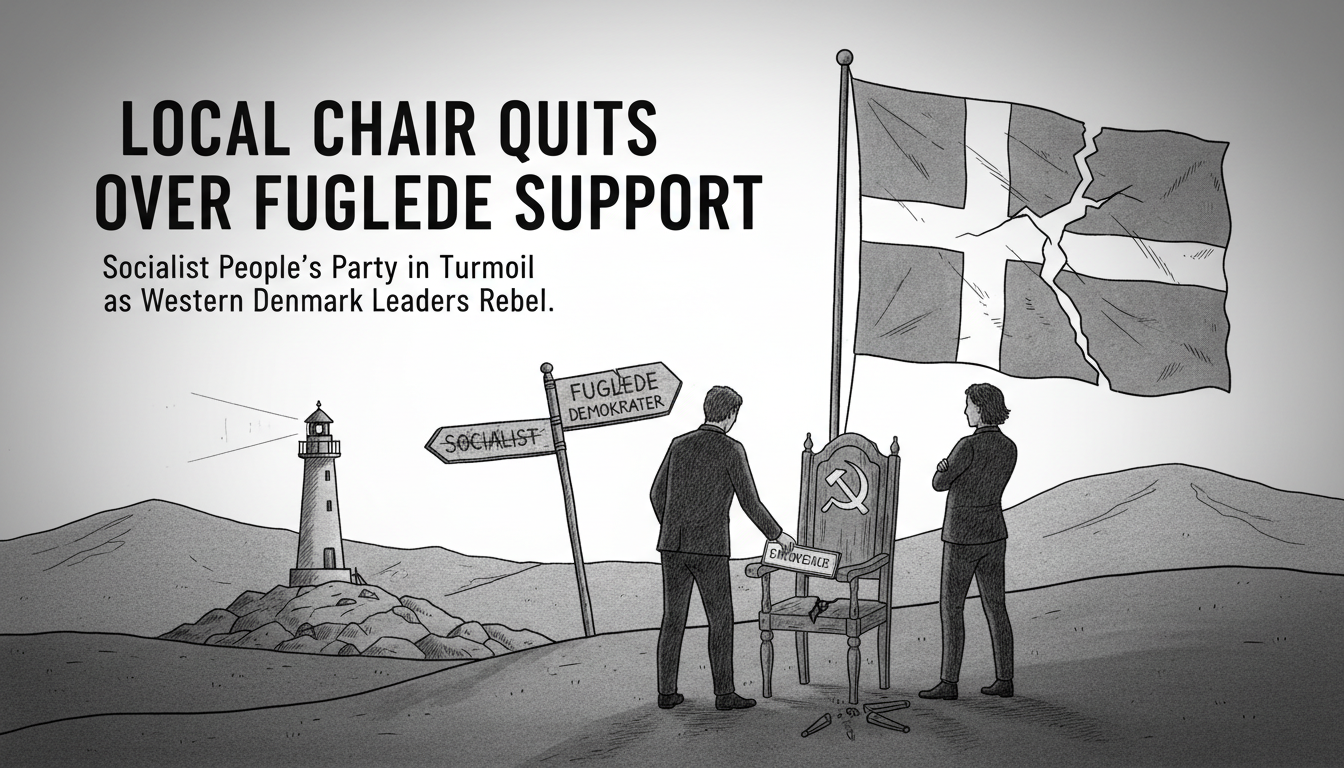A political crisis has erupted within Denmark's Socialist People's Party in western Jutland. The local chair in Ringkøbing has resigned from the party in protest. Gitte Tang Vestergaard announced her departure following the party's decision to support Mads Fuglede as mayor.
Fuglede represents the Denmark Democrats party. He secured the mayoral position in Ringkøbing-Skjern Municipality with support from an unusual coalition. Five parties joined together to form the new municipal government.
The coalition includes the Socialist People's Party, Christian Democrats, Conservatives, Danish People's Party, and Liberal Alliance. This broad political spectrum creates an unusual governing arrangement.
Vestergaard expressed strong opposition to the decision. She stated she could not support Fuglede's appointment as mayor. The local chair announced her resignation on social media platforms. She wrote that her political values differ greatly from the current negotiations.
This marks the second high-profile departure from the party this week. Longtime council member Pia Vestergaard also left the Socialist People's Party. She had served on the municipal council for sixteen years. Both resignations occurred on the same day.
The political landscape in Ringkøbing-Skjern reflects broader trends in Danish politics. Traditional party alliances are shifting across the country. Municipal governments increasingly require cross-spectrum cooperation. This creates tension between local party members and national leadership.
Denmark's municipal governments hold significant power over local services. They manage schools, elderly care, and local infrastructure. The mayor position carries substantial influence over these daily life matters.
The Socialist People's Party typically positions itself on the left of Danish politics. Their support for a Denmark Democrats candidate raises questions about political consistency. The Denmark Democrats emerged recently as a new political force.
Local political experts note this reflects changing voter preferences. Traditional party loyalties are weakening in rural Denmark. Voters increasingly prioritize local issues over national party lines.
The resignations could impact the party's local presence in western Jutland. Losing experienced local representatives may weaken their grassroots organization. This comes at a time when Danish politics faces increasing fragmentation.
What does this mean for international observers? Denmark's reputation for stable coalition politics faces new challenges. The traditional red bloc versus blue bloc division is blurring. Municipal governments now experiment with unprecedented partnerships.
The situation in Ringkøbing-Skjern demonstrates this political evolution. It shows how local politics can drive national political realignments. The fallout may influence how other municipalities approach coalition building.
Danish political culture traditionally values compromise and consensus. These recent developments test those fundamental principles. The resignations highlight the personal costs of political realignment.

